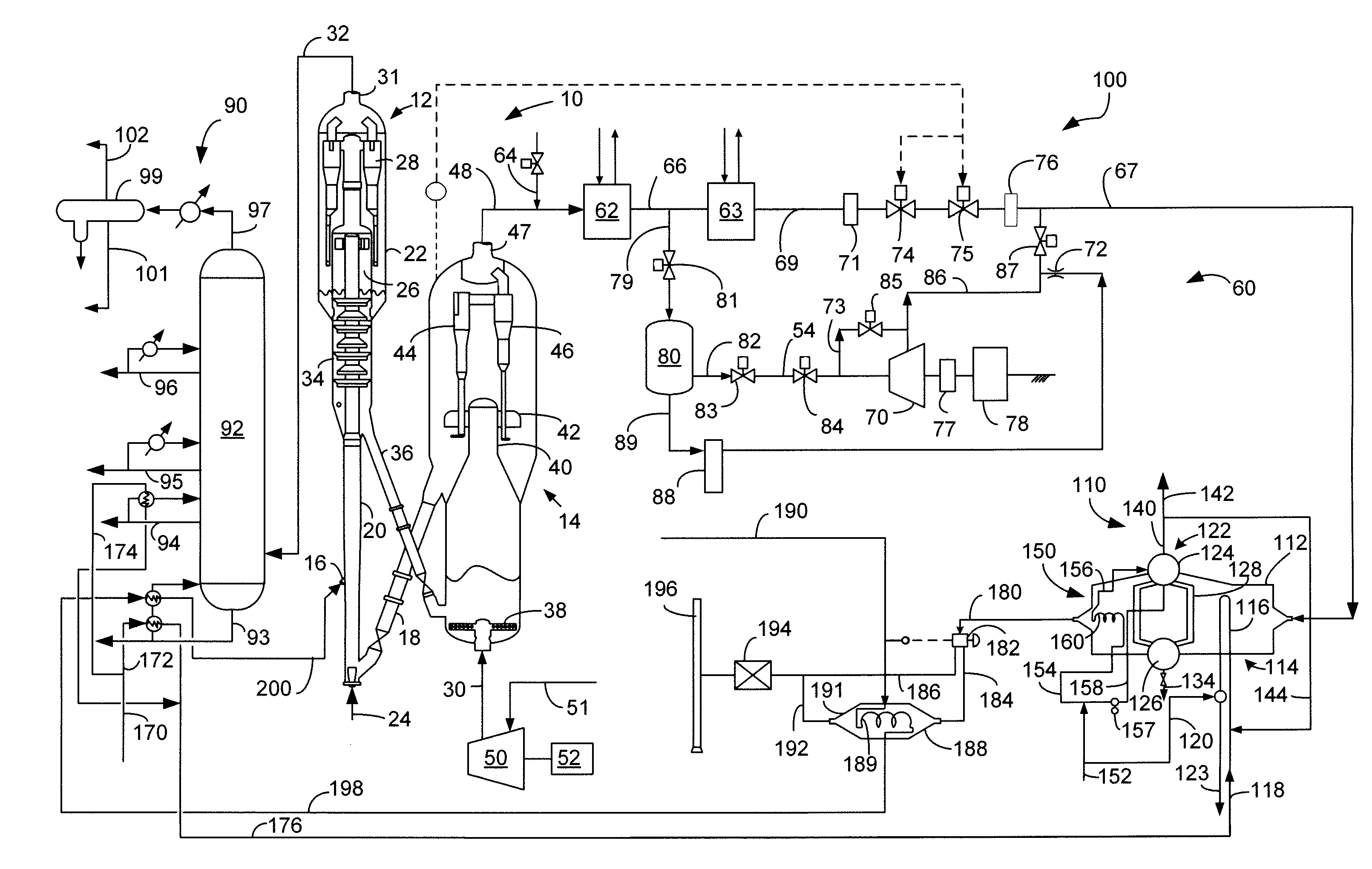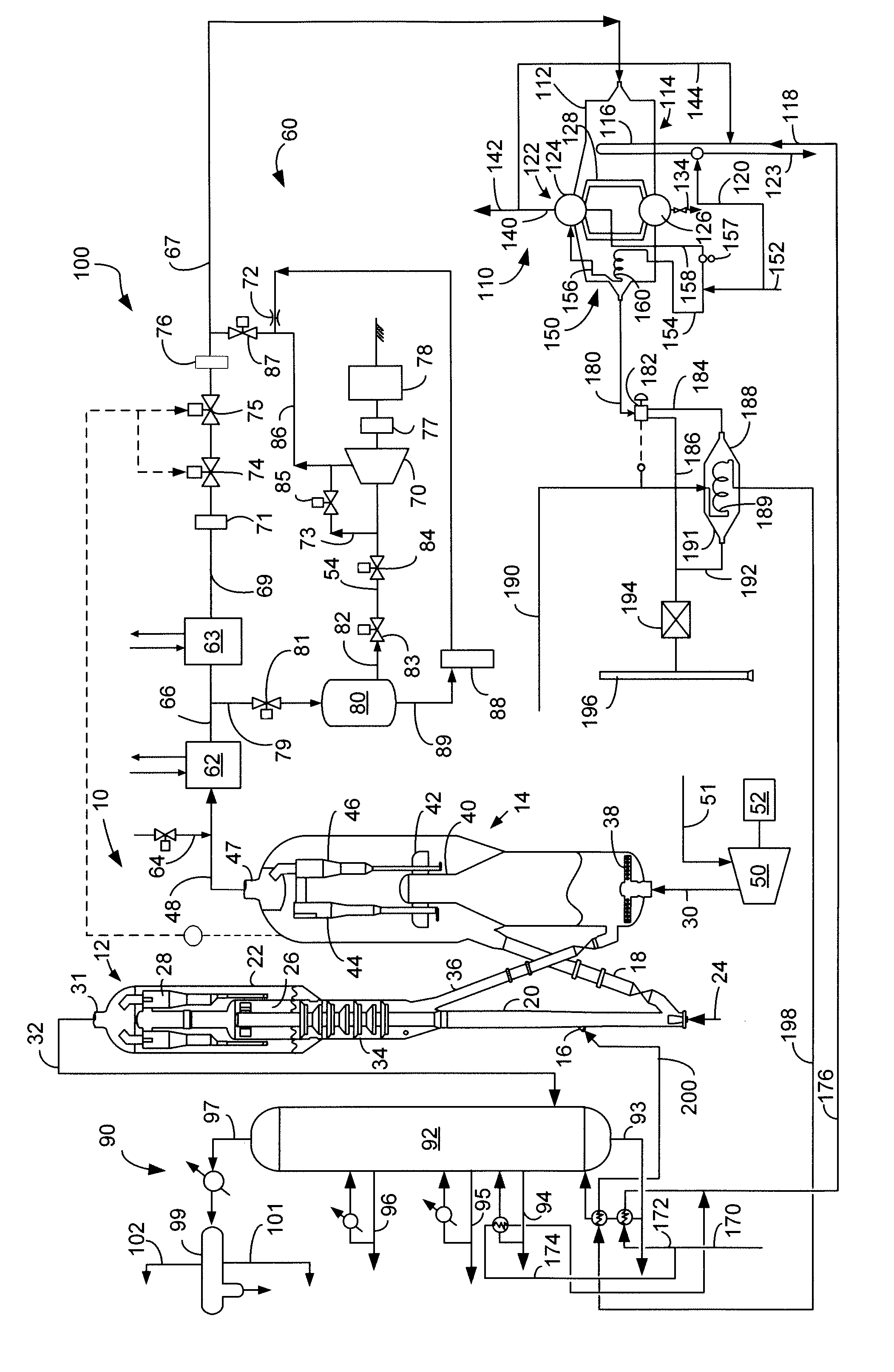Process for Feed Preheating with Flue Gas Cooler
- Summary
- Abstract
- Description
- Claims
- Application Information
AI Technical Summary
Benefits of technology
Problems solved by technology
Method used
Image
Examples
example
[0035]We prophetically calculated the cost savings associated with heat exchanging flue gas with hydrocarbon feed in and FCC unit which is presented in the Table.
Cooling FlueGas in FlueGas Cooler andBaseFeed PreheatCaseExchangerIncrementHP Steam from Flue Gas, Mt / hr74.2066.60−7.60HP Steam from Slurry Oil, Mt / hr74.9991.4116.42HP Steam from HCO, Mt / hr0.0027.1127.11Total HP Steam, Mt / hr149.20185.1235.92Benefit; MM$ / yr44.254.910.6
[0036]By heat exchanging flue gas with hydrocarbon feed, more of the heat in heavy FCC product pump around streams is available for HP steam generation. Almost 36 metric tons per hour more of high pressure steam is made than if the slurry oil pump around is used for all of the feed preheating, resulting in incremental benefits of over ten million dollars per year.
PUM
 Login to View More
Login to View More Abstract
Description
Claims
Application Information
 Login to View More
Login to View More - R&D
- Intellectual Property
- Life Sciences
- Materials
- Tech Scout
- Unparalleled Data Quality
- Higher Quality Content
- 60% Fewer Hallucinations
Browse by: Latest US Patents, China's latest patents, Technical Efficacy Thesaurus, Application Domain, Technology Topic, Popular Technical Reports.
© 2025 PatSnap. All rights reserved.Legal|Privacy policy|Modern Slavery Act Transparency Statement|Sitemap|About US| Contact US: help@patsnap.com


